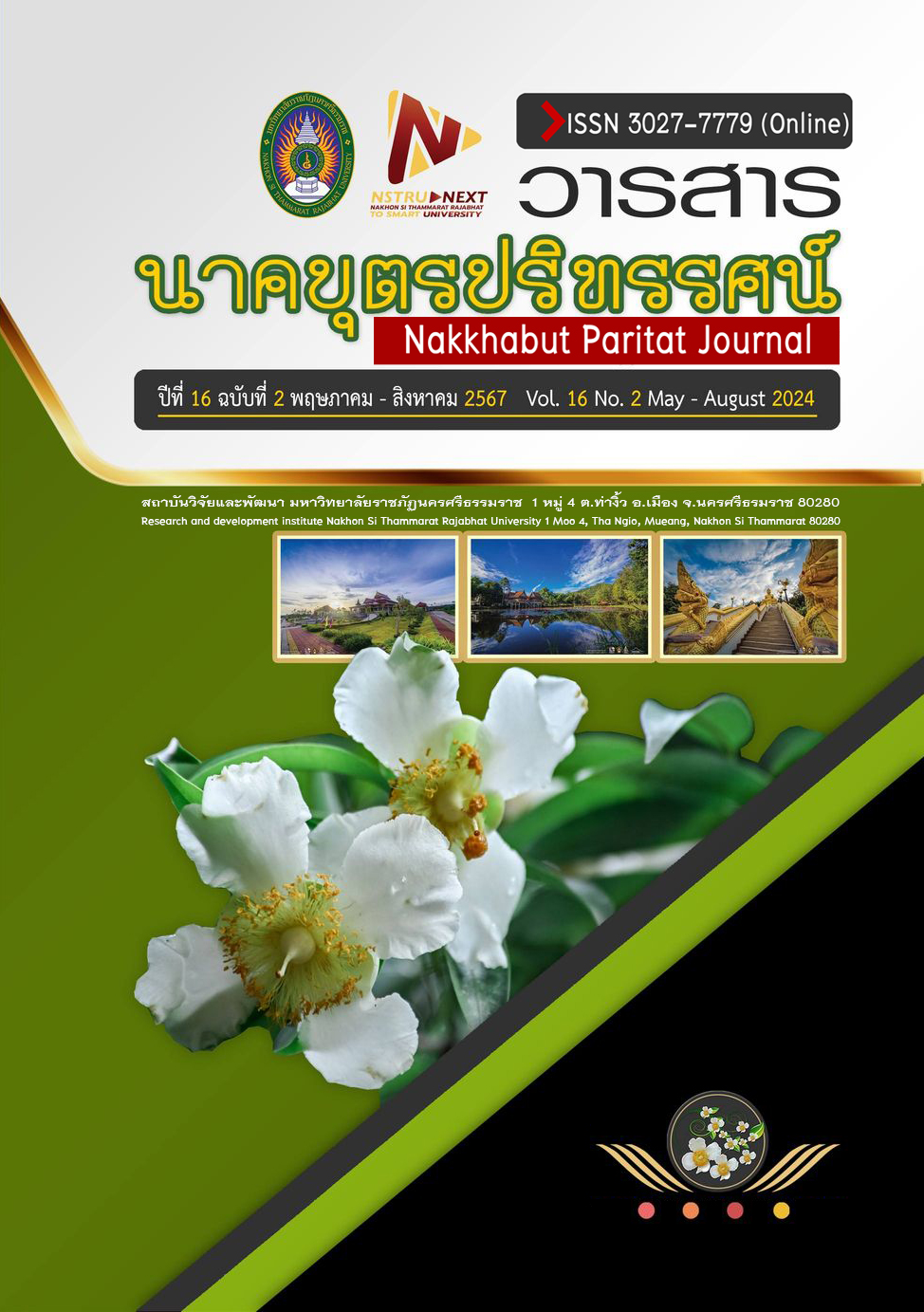การวิเคราะห์องค์ประกอบนักท่องเที่ยวคุณค่าสูงในภาคใต้ของประเทศไทย
Main Article Content
บทคัดย่อ
งานวิจัยนี้มีจุดมุ่งหมายเพื่อศึกษาพฤติกรรมนักท่องเที่ยวคุณค่าสูงในภาคใต้ของประเทศไทย และจำแนกกลุ่มนักท่องเที่ยวคุณค่าสูงตามพฤติกรรมการท่องเที่ยวของนักท่องเที่ยวในภาคใต้ของประเทศไทย โดยประยุกต์แนวคิดคุณค่าของลูกค้า และแนวคิดการตลาดสมัยใหม่ในการทำความเข้าใจกับการท่องเที่ยวคุณค่าสูง ในงานวิจัยนี้มุ่งเน้นเพื่อมุ่งตลาดนักท่องเที่ยวคุณค่าสูง โดยกลุ่มตัวอย่างในการศึกษาครั้งนี้ คือ นักท่องเที่ยวชาวไทยและชาวต่างประเทศคุณค่าสูงที่เดินทางไปท่องเที่ยวในแหล่งท่องเที่ยวที่ได้รับรางวัลอุตสาหกรรมท่องเที่ยวไทย หรือรางวัลกินรีจำนวน9 แหล่งท่องเที่ยวในจังหวัดภูเก็ต กระบี่ นครศรีธรรมราช ชุมพร และสงขลา ผู้วิจัยทดลองเก็บข้อมูลกับกลุ่มตัวอยู่ที่เดินทางท่องเที่ยวในภาคใต้ จำนวน 30 คน เพื่อทดสอบหาค่าความเชื่อมั่นของแบบสอบถาม พบว่ามีค่าความเชื่อมั่นเท่ากับ 0.957 โดยเลือกตัวอย่างแบบเฉพาะเจาะจงจากกลุ่มตัวอย่างที่เป็นนักท่องเที่ยวชาวไทยและชาวต่างประเทศที่ยินดีให้ข้อมูล โดยสามารถเก็บข้อมูลได้จำนวน 515 ตัวอย่าง ผู้วิจัยวิเคราะห์ข้อมูลด้วยเชิงพรรณนา และการวิเคราะห์องค์ประกอบในการจำแนกองค์ประกอบมีการวิเคราะห์ค่า KMO พบว่าเท่ากับ 0.914 และได้ค่าองค์ประกอบทั้งหมด 13 องค์ประกอบที่มีค่าร้อยละความแปรปรวนขององค์ประกอบทั้งหมดที่สามารถอธิบายชุดตัวแปรได้เท่ากับ 67.590 % และผู้วิจัยดำเนินการจัดกลุ่มองค์ประกอบตัวแปรจากค่าน้ำหนักองค์ประกอบที่มีค่าตั้งแต่ 0.30 ขึ้นไป และประกอบด้วยตัวแปรทั้งหมด 3 ค่าขึ้นไป โดยมีองค์ประกอบดังนี้ กลุ่มที่ 1 กลุ่มพักผ่อนหย่อนใจ กลุ่มที่ 2 กลุ่มนักผจญภัย กลุ่มที่ 3 กลุ่มแสวงหาการยอมรับ กลุ่มที่ 4 กลุ่มความสนใจเฉพาะ กลุ่มที่ 5กลุ่มนักท่องเที่ยวผ่อนคลาย กลุ่มที่ 6 กลุ่มนักท่องเที่ยวแบบมวลชน กลุ่มที่ 7 กลุ่มการท่องเที่ยวทางน้ำ กลุ่มที่ 8กลุ่มท่องเที่ยวเพื่อการเรียนรู้ กลุ่มที่ 9 กลุ่มนักเดินทาง กลุ่มที่ 10 กลุ่มนักท่องเที่ยวในเมือง กลุ่มที่ 11 กลุ่มชมวิวทิวทัศน์ กลุ่มที่ 12 กลุ่มประสบการณ์ท้องถิ่น และกลุ่มที่ 13 กลุ่มท่องเที่ยวเพื่ออายุวัฒนะ
Article Details

อนุญาตภายใต้เงื่อนไข Creative Commons Attribution-NonCommercial-NoDerivatives 4.0 International License.
เอกสารอ้างอิง
Aungsuchoti, S., Wijitwanna, S. & Pinyopanuwhaat, R. (2009). Statistics for Research in Social and Behavior Sciences: Technique for Using LISREL program LISREL. (3rd Eds.). Bangkok: Mission Media Press. (in Thai)
Choibamroong, T. (2006). Knowledge of tourists' behavior: A key success factor for managers in tourism business. International Journal of Tourism Research, 1, 1-8.
Cronbach, L. J. (1974). Essentials of psychological testing. (3rd ed). New York: Harper & Row.
Cronin, J. & Fitchett, J. (2022). Consume Culture Theory and Its Contented Discontent: an Interview With Søren Askegaard. Journal of Marketing Management, 38(1-2), 127-144.
Huang, Y., Ruangnapakul, N., Leelapattana, W., & Kusirisin, P. (2022). Research on the Image Management of Ctrip Cross-Border Tourism Product Project. RMUTL Journal of Business Administration and Liberal Arts, 10(2), 101 – 116.
Ministry of Tourism and Sport. (2023). The 3rd Thailand Tourism Development Plan (2023 – 2027). Bangkok: Ministry of Tourism and Sport.
Navakijpaitoon, L., Pongsakornrungsilp, S. & Pongsakornrungsilp, P. (2021). Factor Analysis of Millennial Tourists’ Lifestyles in Thailand. Journal of International and Thai Tourism, 17(1), 18 – 43. (in Thai)
Pimkord, V. (2022). Consumption Behavior of Canned Food in Iran. RMUTL Journal of Business Administration and Liberal Arts, 10(1), 25 – 40. (in Thai)
Pongsakornrungsilp, S. (2013). The Sustainable Tourism Development of the Klongtom Saline Hot Spring, Krabi (Research report). Bangkok: Thailand Research Fund. (in Thai)
Pongsakornrungsilp, S. (2021). Principles of Marketing. (3nd eds.). Bangkok: Chulalongkorn University Press. (in Thai)
Pongsakornrungsilp, S. & Pusaksrikit, T. (2016). Developing Green Tourism in Krabi Province (Research report). Bangkok: Thailand Research Fund. (in Thai)
Pongsakornrungsilp, S., Kumpai, S., Parnphumeesup, P., Chansamran, S. & Dungtripop, W. (2015). Impacts of Change in Tourism Market Structure and Tourists’ Behavior in Krabi Province (Research report). Bangkok: Thailand Research Fund. (in Thai)
Pongsakornrungsilp, S., Pongsakornrungsilp, P., Kumar, V. & Maswongssa, B. (2021). The Art of Survival: Tourism Businesses in Thailand Recovering from COVID-19 through Brand Management. Sustainability, 13, 6690.
Pongsakornrungsilp, S. & Pianroj, N. (2018). The Creation of Sustainable Tourism Brand of Koh Pa Ngan, Surattanee (Research report). Bangkok: Thailand Science Research and Innovation. (in Thai)
Pongsakornrungsilp, S., Suppadit, T., Pongsakornrungsilp, P. & Chansamran, S. (2019). Creating Tourism Identity of Klongtom Saline Hot Spring, Krabi Province. Journal of Business Administration Maejo University, 2(2), 60–78. (in Thai)
Pongsakornrungsilp, S. & Schroeder, J.E. (2011). Understanding Value Co-Creation in a Co-Consuming Brand Community. Marketing Theory, 11(3), 303 - 324.
Punyayuen, J. & Wingwon, B. (2022). Effect of Service Marketing Mix, Electronic Service Quality, Technology Acceptance toward Satisfaction in Ordering Food Delivery through the Application of Consumer in Lampang Province. RMUTL Journal of Business Administration and Liberal Arts, 10(2), 65 – 82. (in Thai)
Saengow, P., Pongsakornrungsilp, S. & Pongsakornrungsilp, P. (2016). Factor Analysis of the Lifestyles of Generation Y Consumers on the East Coast of Southern Thailand through AIO Model. Journal of Management Science, Suratthani Rajabhat University, 3(2), 43 – 69. (in Thai)
Steven, K. (1992). Sampling. New York: John Wiley & Sons, Inc.
Tourism Authority of Thailand. (2021). Exploring Tourism Behavior of Thai Tourists. Bangkok: In-Touch Research and Consultant, Co., Ltd.
Vanichpuncha, K. (2010). Using SPSS For Windows in Data Analysis. Bangkok: Chulalongkorn University Press. (in Thai)
Vargo, S.L. (2020). Assessing and Advancing Marketing’s Value Propositions: A Disciplinary Dialog. AMS Review, 10, 149 – 150.
Vargo, S.L., Wieland, H. & O’Brian, M. (2023). Service-Dominant Logic as a Unifying Theoretical Framework for the Re-Institutionalization of the Marketing Discipline. Journal of Business Research, 164, 113965.


